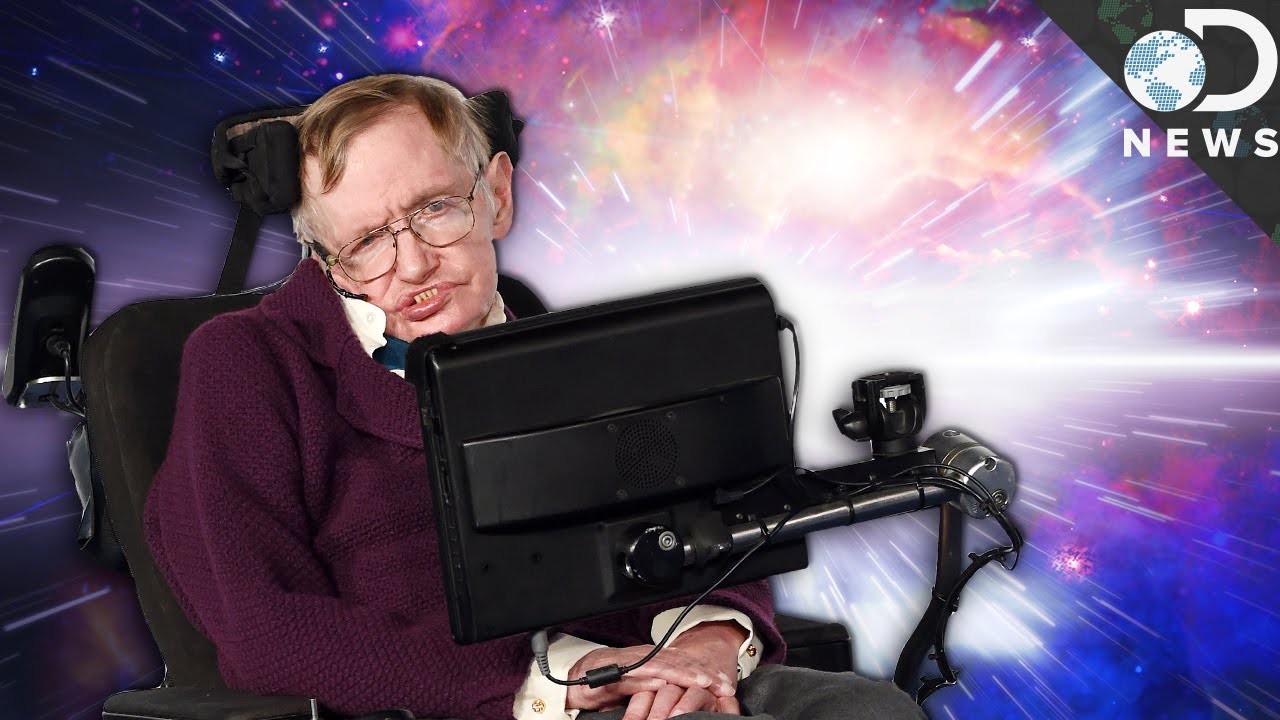
Understanding Stephen Hawking Disease: A Unique Perspective on ALS
Stephen Hawking disease, better known as Amyotrophic Lateral Sclerosis (ALS), represents more than just a medical condition. This disease typically leads to the progressive degeneration of motor neurons, making it increasingly challenging for individuals to move, speak, and even breathe. But for Hawking, this journey turned into a fascinating exploration of human spirit. He battled ALS for over five decades, outliving the traditional life expectancy often associated with this illness.
While many of us might view ALS through the clinical lens of despair and hopelessness, Hawking elevated the narrative. He transformed his diagnosis into a platform for raising awareness. The human mind’s resilience can be awe-inspiring, and Hawking exemplified this truth, demonstrating how individuals can still pursue dreams and ideals despite the most daunting adversities. Through his life, he offered a perspective on ALS that blended science, humor, and profound wisdom, inviting the world to rethink its assumptions about disability.
Living with Stephen Hawking disease wasn’t without its hurdles. As he faced the reality of physical limitations, he also grappled with emotional struggles common among those with chronic illnesses. But, instead of allowing these challenges to break him, he harnessed them, using his experience to fuel his thirst for knowledge. His journey wasn’t just about physical deterioration; it was a testament to triumph, a blend of intellect and unyielding positivity.

7 Remarkable Achievements Despite Stephen Hawking Disease
Hawking’s groundbreaking work, particularly in Black Hole Thermodynamics, reshaped our understanding of the cosmos. He introduced concepts that suggested black holes emit radiation, defying previous beliefs and positioning these cosmic giants at the forefront of modern physics.
This work reached over 25 million across the globe, offering readers a chance to grasp the enigma of the universe. Hawking opened the doors of scientific knowledge, making it digestible and interesting to all — not just experts.
Harnessing a speech-generating device that relied on eye movements, Hawking showcased how technology could work in tandem with human ability. The innovation represented a monumental leap forward, giving voice to many who find it hard to communicate.
Hawking was more than a scientist; he was an ardent advocate. Using his platform, he championed equal rights and opportunities for individuals with disabilities, challenging stigmas and amplifying voices around the world.
You’d be hard-pressed to find another figure with as many accolades. Hawking earned distinctions like the CBE and the Presidential Medal of Freedom, emphasizing his monumental impact on both science and society.
Did you know characters inspired by Hawking appeared in shows like The Big Bang Theory? He has become a cultural icon, helping reshape public perceptions of ALS and showcasing the tremendous abilities surpassing physical restrictions.
Through engaging documentaries and insightful public lectures, Hawking fueled a passion for science among young minds. His ability to simplify complex ideas inspired countless individuals to pursue knowledge and understanding.

The Influence of Technology on Hawking’s Journey with Stephen Hawking Disease
Hawking’s life journey illustrates a compelling fusion of technology and human tenacity. Early in his diagnosis, he turned to technology as a lifeline, employing innovative tools to enhance his communication as his body began to fail him. His partnership with tech companies to develop advanced adaptive technologies provided him not just with a voice but served as an inspiration for many.
The development of speech synthesis software demonstrated the evolving capabilities of technology. With each advancement, expectations shifted for those coping with conditions like Stephen Hawking disease. These technologies empowered individuals, transforming traditional assistive devices into platforms for communication and engagement.
Moreover, Hawking’s reliance on technology underscored a vital truth: while physical abilities may wane, intellectual prowess can know no bounds. By embracing technological advancements, he maximized his potential, fueling his contributions to science, culture, and society, proving that the human spirit can overcome any barrier.
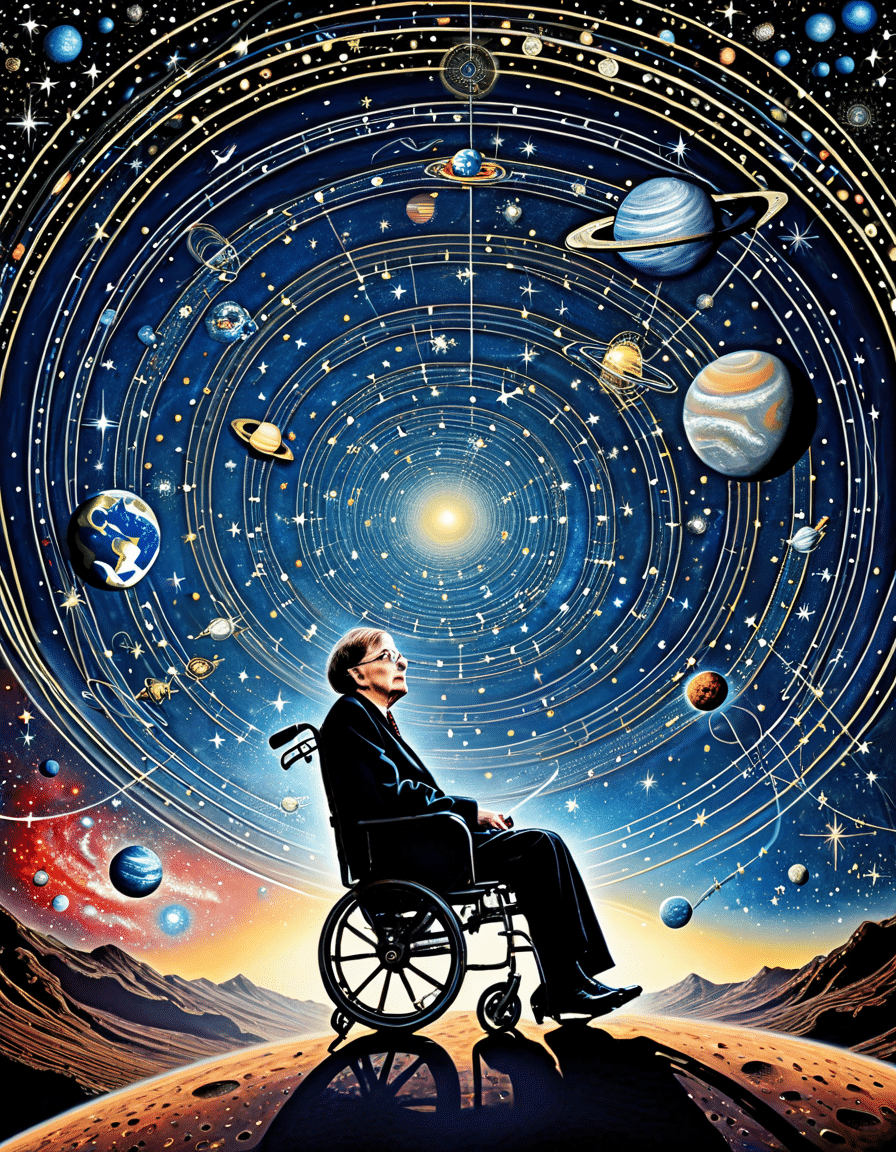
The Personal Resilience of Stephen Hawking: A Psychological Exploration
Stephen’s resilience clearly highlights a unique psychological perspective on living with Stephen Hawking disease. Researchers note that individuals facing chronic illnesses often undergo emotional adaptations, learning to navigate life’s uncertainties. Hawking exemplified this idea, cultivating a mindset of continuous curiosity and unwavering determination.
His ability to maintain a positive outlook despite the harsh realities of ALS speaks volumes. Studies show that resilience can significantly enhance one’s quality of life, suggesting that Hawking’s mindset wasn’t merely an outlier but rather a crucial component of his journey. The intersection of psychological strength and intellectual engagement played a vital role in his achievements.
Hawking’s life experiences offer a lesson for us all: When faced with challenges, reframing our mindset can lead to extraordinary outcomes. Instead of succumbing to the shadows of despair, he continually sought light through education, exploration, and discovery, inspiring millions in the process.
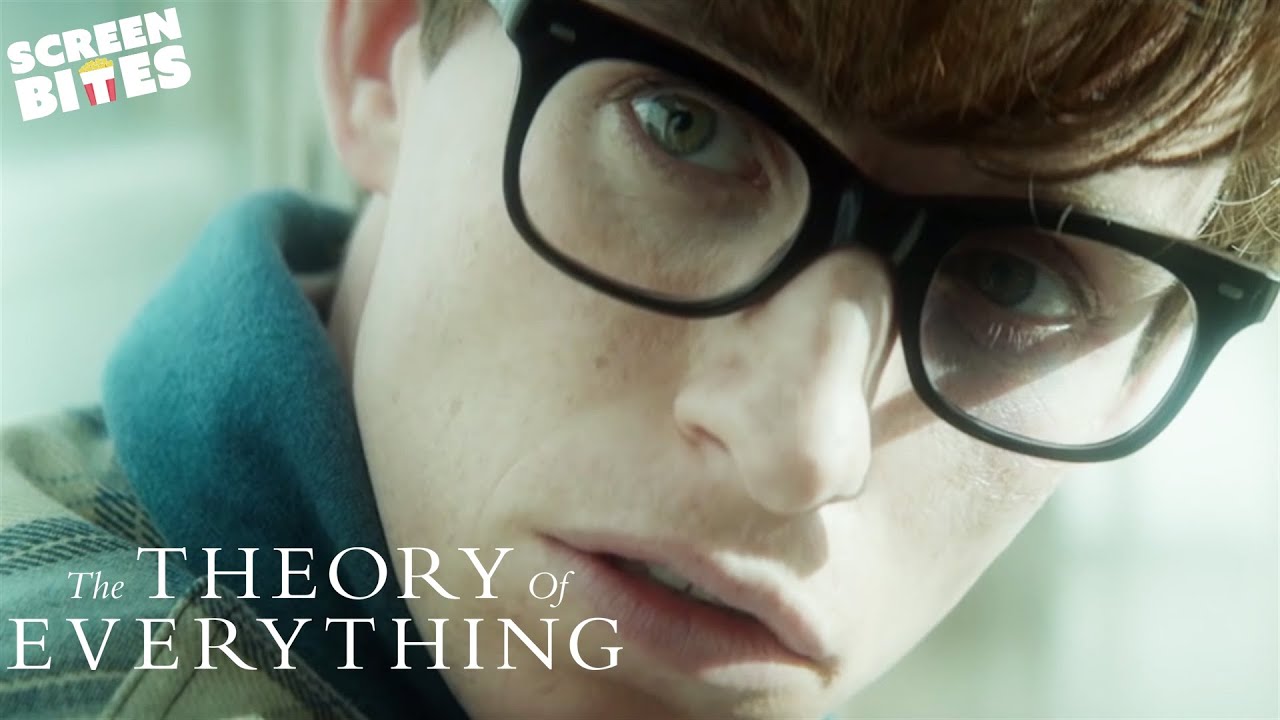
Legacy and Continued Impact of Stephen Hawking Disease Awareness
Hawking’s legacy has far-reaching effects. His battle with Stephen Hawking disease has not only altered perceptions of ALS but also ignited conversations about disabilities. The research initiatives founded in his name highlight a commitment to furthering understanding and treatments for ALS, driving innovations that have real-world implications.
Organizations like The ALS Association credit increased donations to Hawking’s public engagements over the years. His determination to raise awareness has inspired new generations of scientists and advocates to push for advancements in research and care, affirming that his influence did not end with his passing.
Current research projects motivated by his legacy underscore the importance of continuing the conversation around ALS. As the scientific community pushes boundaries, Hawking’s fight reminds us that no challenge is insurmountable, and further inquiry will unlock new avenues for understanding and treatment.
Embracing Stephen Hawking’s Philosophy: Life Beyond Stephen Hawking Disease
One of the most beautiful philosophies Hawking lived by was that life could be tragic only if it lacked humor. This mindset encourages us all to face life’s hurdles with creativity and resilience, regardless of the obstacles in our path. He taught us that pursuing joy is always worth it, even amid suffering.
In our lives, carrying forward Hawking’s philosophy can be transformative. Embracing challenges doesn’t dismantle our dreams; it can be the driving force behind fulfilling them. Just as he challenged our understanding of the universe, we too can challenge boundaries—even those imposed by physical limitations.
Ultimately, Hawking’s life serves as a powerful reminder: Within every struggle lies the potential for greatness. Whether it’s making groundbreaking scientific discoveries or simply finding joy in everyday life, embracing his legacy encourages everyone to fulfill their potential against all odds.
Let’s channel Hawking’s tenacity into our own quests—whether it’s getting shredded in the gym or pursuing your passion. As Arnold Schwarzenegger might say, it’s time to “get pumped” and embrace the challenges to push beyond impossible barriers. Let’s build our own legacy!
Stephen Hawking Disease: A Fascinating Journey
Stephen Hawking was diagnosed with amyotrophic lateral sclerosis (ALS), commonly referred to as Lou Gehrig’s disease, at just 21 years old. This progressive condition primarily affects motor neurons, leading to increasing muscle weakness and eventually paralysis. Despite the dire prognosis—many patients with Hawking’s condition live only a few years—Hawking defied the odds and lived until the age of 76, highlighting the resilience of the human spirit. Interestingly, the fight against ALS isn’t dissimilar to how one might approach restless legs syndrome treatments, which often involve lifestyle changes and targeted therapies.
One delightful fact about Hawking’s life is how he frequently incorporated science into pop culture. He even made an appearance on “The Big Bang Theory,” showing that this genius wasn’t just about equations and theories. It’s like the time Elton John composed “Bennie and the Jets” lyrics, blending his own experiences with imagination. In a way, Hawking’s ability to bridge serious scientific work with fun avenues is a testament to the joyfulness of human creativity, much like how movies like Grumpier Old Men remind us to find humor in life’s quirks.
In addition to his scientific accolades, Hawking was an avid learner and lover of the arts. His unique way of connecting complex scientific concepts to everyday phenomena reminds me of how enjoying some Starbucks hot chocolate can brighten a rainy day or how that refreshing ginger juice can invigorate the senses. Just as these little pleasures enrich life, Hawking’s work invited many to explore the fascinating universe around them. He even inspired collaborations that helped benefit various causes, aligning with critical advancements we see today, much like innovations undertaken in culinary spaces—think about unique items like Pottery Barn backpacks, each with its flair while serving a practical purpose.
As for the challenges he faced, they have parallels in countless other health issues. For example, understanding Crohn’s symptoms can resemble the struggle many endure with chronic conditions. Yet, amidst these hurdles, Hawking navigated life with humor and grace. His journey reminds us that, like experiencing the unexpected Hawaii earthquake, life can toss tricky situations our way, but it’s our responses that truly matter. In every twist and turn, we can find inspiration, much like Hawking did throughout his remarkable life story.
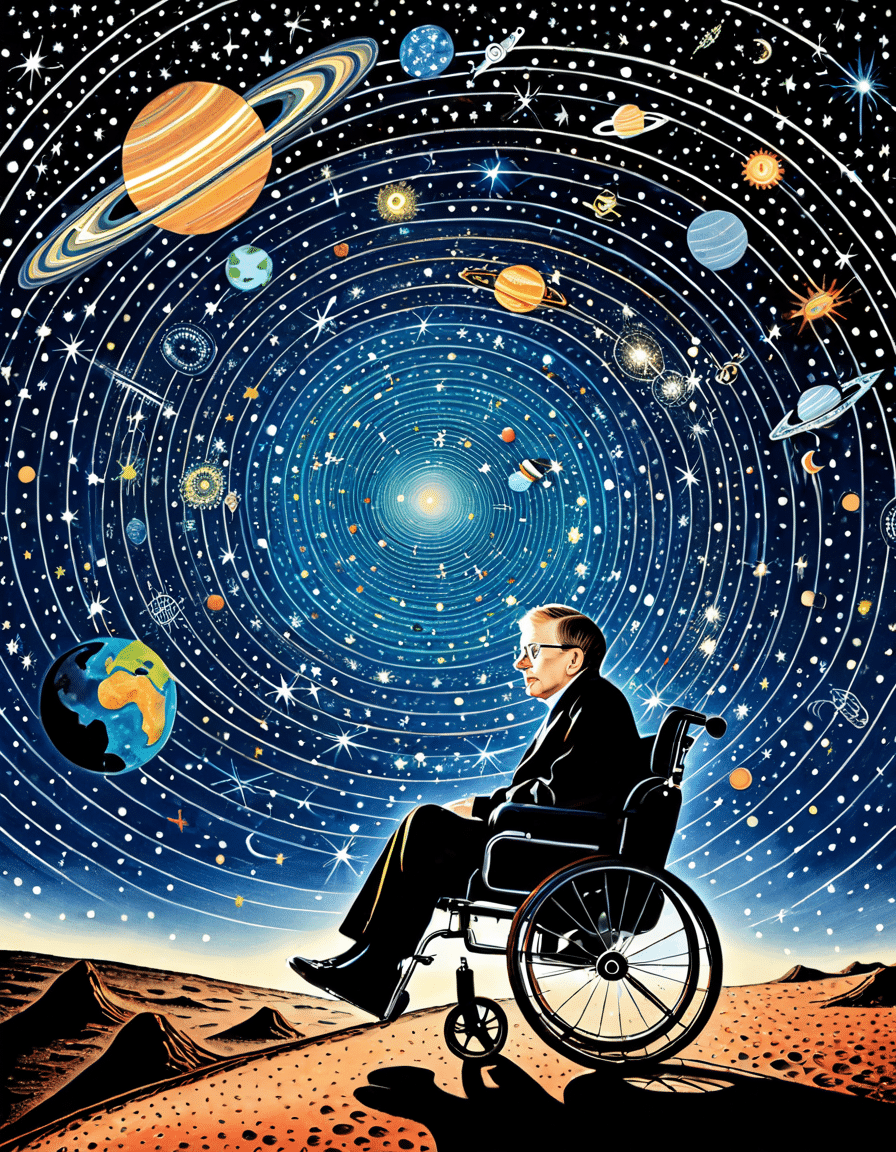




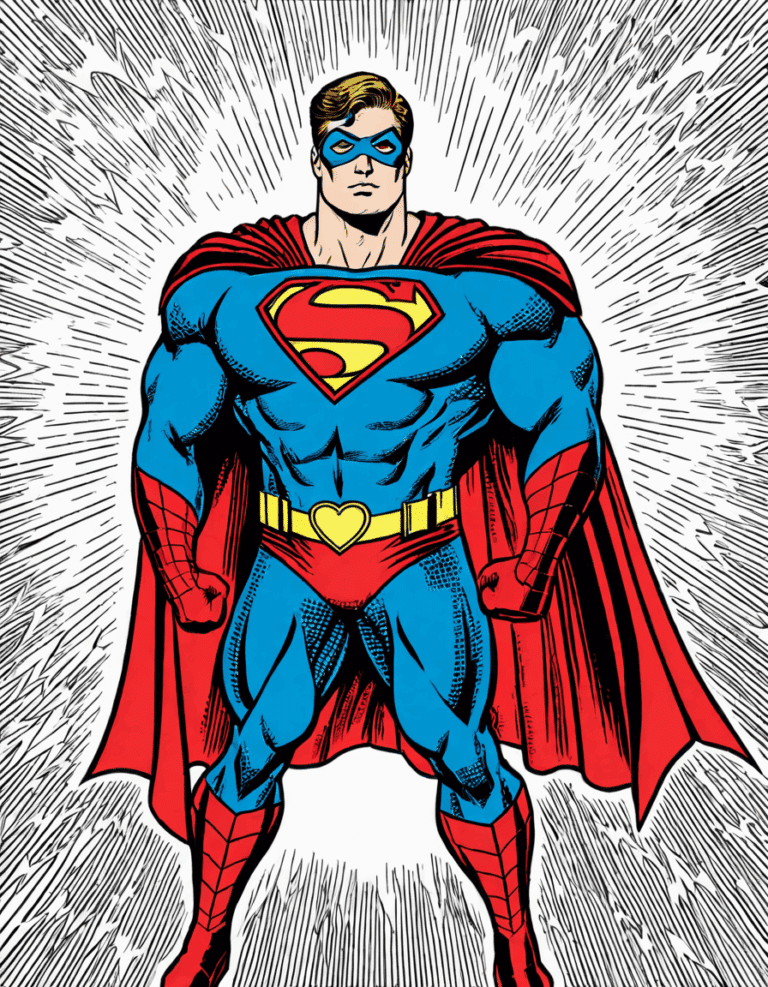




![Goodnight for Justice Triple Feature (Goodnight for Justice Queen of Hearts Measure of a Man) [DVD]](https://www.chiseled-magazine.com/wp-content/uploads/2024/03/Goodnight-for-Justice-Triple-Feature-Goodnight-for-Justice-Queen-of-Hearts-Measure-of-a-Man-DVD.jpg)
















